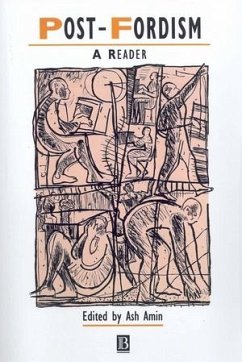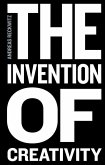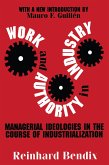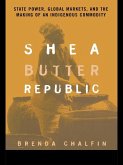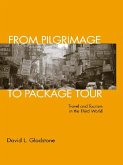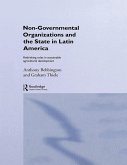Post-Fordism (eBook, PDF)
A Reader
Redaktion: Amin, Ash
55,40 €
55,40 €
inkl. MwSt.
Sofort per Download lieferbar

0 °P sammeln
55,40 €
Als Download kaufen

55,40 €
inkl. MwSt.
Sofort per Download lieferbar

0 °P sammeln
Jetzt verschenken
Alle Infos zum eBook verschenken
55,40 €
inkl. MwSt.
Sofort per Download lieferbar
Alle Infos zum eBook verschenken

0 °P sammeln
Post-Fordism (eBook, PDF)
A Reader
Redaktion: Amin, Ash
- Format: PDF
- Merkliste
- Auf die Merkliste
- Bewerten Bewerten
- Teilen
- Produkt teilen
- Produkterinnerung
- Produkterinnerung

Bitte loggen Sie sich zunächst in Ihr Kundenkonto ein oder registrieren Sie sich bei
bücher.de, um das eBook-Abo tolino select nutzen zu können.
Hier können Sie sich einloggen
Hier können Sie sich einloggen
Sie sind bereits eingeloggt. Klicken Sie auf 2. tolino select Abo, um fortzufahren.

Bitte loggen Sie sich zunächst in Ihr Kundenkonto ein oder registrieren Sie sich bei bücher.de, um das eBook-Abo tolino select nutzen zu können.
Part analysis of contemporary change and part vision of the future, post-Fordism lends its name to a set of challenging, essential and controversial debates over the nature of capitalism's newest age. This book provides a superb introduction to these debates and their far-reaching implications, and includes key texts by post-Fordism's major theorists and commentators.
- Geräte: PC
- mit Kopierschutz
- eBook Hilfe
- Größe: 38.15MB
Andere Kunden interessierten sich auch für
![The Invention of Creativity (eBook, PDF) The Invention of Creativity (eBook, PDF)]() Andreas ReckwitzThe Invention of Creativity (eBook, PDF)23,99 €
Andreas ReckwitzThe Invention of Creativity (eBook, PDF)23,99 €![Post-Fordism (eBook, ePUB) Post-Fordism (eBook, ePUB)]() Post-Fordism (eBook, ePUB)32,80 €
Post-Fordism (eBook, ePUB)32,80 €![Work and Authority in Industry (eBook, PDF) Work and Authority in Industry (eBook, PDF)]() Reinhard BendixWork and Authority in Industry (eBook, PDF)49,95 €
Reinhard BendixWork and Authority in Industry (eBook, PDF)49,95 €![Shea Butter Republic (eBook, PDF) Shea Butter Republic (eBook, PDF)]() Brenda ChalfinShea Butter Republic (eBook, PDF)46,95 €
Brenda ChalfinShea Butter Republic (eBook, PDF)46,95 €![Post Society (eBook, PDF) Post Society (eBook, PDF)]() Carlo BordoniPost Society (eBook, PDF)16,99 €
Carlo BordoniPost Society (eBook, PDF)16,99 €![From Pilgrimage to Package Tour (eBook, PDF) From Pilgrimage to Package Tour (eBook, PDF)]() David L. GladstoneFrom Pilgrimage to Package Tour (eBook, PDF)41,95 €
David L. GladstoneFrom Pilgrimage to Package Tour (eBook, PDF)41,95 €![Non-Governmental Organizations and the State in Latin America (eBook, PDF) Non-Governmental Organizations and the State in Latin America (eBook, PDF)]() Non-Governmental Organizations and the State in Latin America (eBook, PDF)57,95 €
Non-Governmental Organizations and the State in Latin America (eBook, PDF)57,95 €-
- -33%11
-
Part analysis of contemporary change and part vision of the future, post-Fordism lends its name to a set of challenging, essential and controversial debates over the nature of capitalism's newest age. This book provides a superb introduction to these debates and their far-reaching implications, and includes key texts by post-Fordism's major theorists and commentators.
Dieser Download kann aus rechtlichen Gründen nur mit Rechnungsadresse in A, B, BG, CY, CZ, D, DK, EW, E, FIN, F, GR, HR, H, IRL, I, LT, L, LR, M, NL, PL, P, R, S, SLO, SK ausgeliefert werden.
Produktdetails
- Produktdetails
- Verlag: John Wiley & Sons
- Erscheinungstermin: 15. September 2008
- Englisch
- ISBN-13: 9780470712511
- Artikelnr.: 38186486
- Verlag: John Wiley & Sons
- Erscheinungstermin: 15. September 2008
- Englisch
- ISBN-13: 9780470712511
- Artikelnr.: 38186486
- Herstellerkennzeichnung Die Herstellerinformationen sind derzeit nicht verfügbar.
Ash Amin works in the Centre for Urban and Regional Development Studies at the University of Newcastle Upon Tyne, UK. He is the editor, most recently, of Globalisation, Institutions and Regional Development in Europe (with Nigel Thrift).
List of Contributors.
Acknowledgements.
1. Post-Fordism: Models, Fantasies and Phantoms of Transition: Ash Amin
(University of Newcastle).
Part I: New Macroeconomic Designs:.
2. Puzzling out the Post-Fordist Debate: Technology, Markets and
Institutions: Mark Elam (Linkoping University).
3. The Crisis of Fordism and the Dimensions of a 'Post-Fordist' Regional
and Urban Structure: Josef Esser (Goethe University, Germany) and Joachim
Hirsch (Goethe University, Germany).
Part II: New Sociologies and Geographies of Industrial Organisation: .
4. Flexible Specialisation and the Re-emergence of Regional Economies:
Charles F. Sabel (MIT, USA).
5. A New Paradigm of Work Organization and Technology: John Tomaney
(University of Newcastle-upon-Tyne).
6. The Transition to Flexible Specialization in the US Film Industry:
External Economies, the Division of Labour and the Crossing of Industrial
Divides: Michael Storper (University of California, Los Angeles, USA).
7. Competing Structural and Institutional Influences on the Geography of
Production in Europe: Ash Amin (University of Newcastle-upon-Tyne) and
Anders Malmberg (Uppsala University, Sweden).
Part III: Policy and Politics Beyond Fordism:.
8. Post-Fordism and the State: Bob Jessop (Lancaster University).
9. Searching for a New Institutional Fix: The After-Fordist crisis and
Global-local Disorder: Jamie Peck (Manchester University) and Adam Tickel
(Leeds University).
10. Post-Fordist City Politics: Margit Mayer (Free University of Berlin,
Germany).
11. Post-Fordism and Democracy: Alain Lipietz (CEPREMAP, Paris, France).
Part IV: Post-Fordist City Lives and Lifestyles:.
12. Flexible Accumulation through Urbanization: Reflections on
'Post-Modernism' in the American City: David Harvey (Johns Hopkins
University).
13. City Cultures and Postmodern Lifestyles: Mike Featherstone (Teeside
University).
14. The Fortress City: Privatized Spaces, Consumer Citizenship: Susan
Christopherson (Cornell University, USA).
Index.
Acknowledgements.
1. Post-Fordism: Models, Fantasies and Phantoms of Transition: Ash Amin
(University of Newcastle).
Part I: New Macroeconomic Designs:.
2. Puzzling out the Post-Fordist Debate: Technology, Markets and
Institutions: Mark Elam (Linkoping University).
3. The Crisis of Fordism and the Dimensions of a 'Post-Fordist' Regional
and Urban Structure: Josef Esser (Goethe University, Germany) and Joachim
Hirsch (Goethe University, Germany).
Part II: New Sociologies and Geographies of Industrial Organisation: .
4. Flexible Specialisation and the Re-emergence of Regional Economies:
Charles F. Sabel (MIT, USA).
5. A New Paradigm of Work Organization and Technology: John Tomaney
(University of Newcastle-upon-Tyne).
6. The Transition to Flexible Specialization in the US Film Industry:
External Economies, the Division of Labour and the Crossing of Industrial
Divides: Michael Storper (University of California, Los Angeles, USA).
7. Competing Structural and Institutional Influences on the Geography of
Production in Europe: Ash Amin (University of Newcastle-upon-Tyne) and
Anders Malmberg (Uppsala University, Sweden).
Part III: Policy and Politics Beyond Fordism:.
8. Post-Fordism and the State: Bob Jessop (Lancaster University).
9. Searching for a New Institutional Fix: The After-Fordist crisis and
Global-local Disorder: Jamie Peck (Manchester University) and Adam Tickel
(Leeds University).
10. Post-Fordist City Politics: Margit Mayer (Free University of Berlin,
Germany).
11. Post-Fordism and Democracy: Alain Lipietz (CEPREMAP, Paris, France).
Part IV: Post-Fordist City Lives and Lifestyles:.
12. Flexible Accumulation through Urbanization: Reflections on
'Post-Modernism' in the American City: David Harvey (Johns Hopkins
University).
13. City Cultures and Postmodern Lifestyles: Mike Featherstone (Teeside
University).
14. The Fortress City: Privatized Spaces, Consumer Citizenship: Susan
Christopherson (Cornell University, USA).
Index.
List of Contributors.
Acknowledgements.
1. Post-Fordism: Models, Fantasies and Phantoms of Transition: Ash Amin
(University of Newcastle).
Part I: New Macroeconomic Designs:.
2. Puzzling out the Post-Fordist Debate: Technology, Markets and
Institutions: Mark Elam (Linkoping University).
3. The Crisis of Fordism and the Dimensions of a 'Post-Fordist' Regional
and Urban Structure: Josef Esser (Goethe University, Germany) and Joachim
Hirsch (Goethe University, Germany).
Part II: New Sociologies and Geographies of Industrial Organisation: .
4. Flexible Specialisation and the Re-emergence of Regional Economies:
Charles F. Sabel (MIT, USA).
5. A New Paradigm of Work Organization and Technology: John Tomaney
(University of Newcastle-upon-Tyne).
6. The Transition to Flexible Specialization in the US Film Industry:
External Economies, the Division of Labour and the Crossing of Industrial
Divides: Michael Storper (University of California, Los Angeles, USA).
7. Competing Structural and Institutional Influences on the Geography of
Production in Europe: Ash Amin (University of Newcastle-upon-Tyne) and
Anders Malmberg (Uppsala University, Sweden).
Part III: Policy and Politics Beyond Fordism:.
8. Post-Fordism and the State: Bob Jessop (Lancaster University).
9. Searching for a New Institutional Fix: The After-Fordist crisis and
Global-local Disorder: Jamie Peck (Manchester University) and Adam Tickel
(Leeds University).
10. Post-Fordist City Politics: Margit Mayer (Free University of Berlin,
Germany).
11. Post-Fordism and Democracy: Alain Lipietz (CEPREMAP, Paris, France).
Part IV: Post-Fordist City Lives and Lifestyles:.
12. Flexible Accumulation through Urbanization: Reflections on
'Post-Modernism' in the American City: David Harvey (Johns Hopkins
University).
13. City Cultures and Postmodern Lifestyles: Mike Featherstone (Teeside
University).
14. The Fortress City: Privatized Spaces, Consumer Citizenship: Susan
Christopherson (Cornell University, USA).
Index.
Acknowledgements.
1. Post-Fordism: Models, Fantasies and Phantoms of Transition: Ash Amin
(University of Newcastle).
Part I: New Macroeconomic Designs:.
2. Puzzling out the Post-Fordist Debate: Technology, Markets and
Institutions: Mark Elam (Linkoping University).
3. The Crisis of Fordism and the Dimensions of a 'Post-Fordist' Regional
and Urban Structure: Josef Esser (Goethe University, Germany) and Joachim
Hirsch (Goethe University, Germany).
Part II: New Sociologies and Geographies of Industrial Organisation: .
4. Flexible Specialisation and the Re-emergence of Regional Economies:
Charles F. Sabel (MIT, USA).
5. A New Paradigm of Work Organization and Technology: John Tomaney
(University of Newcastle-upon-Tyne).
6. The Transition to Flexible Specialization in the US Film Industry:
External Economies, the Division of Labour and the Crossing of Industrial
Divides: Michael Storper (University of California, Los Angeles, USA).
7. Competing Structural and Institutional Influences on the Geography of
Production in Europe: Ash Amin (University of Newcastle-upon-Tyne) and
Anders Malmberg (Uppsala University, Sweden).
Part III: Policy and Politics Beyond Fordism:.
8. Post-Fordism and the State: Bob Jessop (Lancaster University).
9. Searching for a New Institutional Fix: The After-Fordist crisis and
Global-local Disorder: Jamie Peck (Manchester University) and Adam Tickel
(Leeds University).
10. Post-Fordist City Politics: Margit Mayer (Free University of Berlin,
Germany).
11. Post-Fordism and Democracy: Alain Lipietz (CEPREMAP, Paris, France).
Part IV: Post-Fordist City Lives and Lifestyles:.
12. Flexible Accumulation through Urbanization: Reflections on
'Post-Modernism' in the American City: David Harvey (Johns Hopkins
University).
13. City Cultures and Postmodern Lifestyles: Mike Featherstone (Teeside
University).
14. The Fortress City: Privatized Spaces, Consumer Citizenship: Susan
Christopherson (Cornell University, USA).
Index.
